Treating IBS Is Not An Exact Science
There is no magic pill, no set of exercise routines, and no one-size-fits-all diet for treating IBS. It is a combination of individual changes in daily life that vary from person to person. Despite research and new treatments, people living with the condition are constantly looking for a different method for soothing symptoms. It often takes trial and error, self-advocacy, and patience to develop a way to manage the sometimes-unpredictable nature of the condition.
To learn more about how people with IBS are treating their condition, we conducted our 5th Annual IBS In America survey. More than 1,900 people with IBS completed the survey and provided insight into treatment approaches.
A lack of control
Only 12 percent* of people who took the survey say their IBS is controlled on their current treatment plan. This could be because nearly half of those who have not tried a prescription IBS medication say their doctor has not recommended such treatment.
Dietary changes
Knowing what type of dietary changes will alleviate symptoms comes into focus once someone realizes their triggers. While people find it easy to take their IBS medicines, nearly half would prefer a lifestyle or diet change to a prescription drug. Many people with IBS avoid or limit acidic foods, alcohol, spicy food, certain vegetables, caffeine, dairy/lactose, and more.
Commonly tried treatments
Antacids and antidiarrheals are the most commonly tried and used treatments for IBS symptoms other than pain. Over-the-counter NSAIDs and pain medicines, as well as heating pads and exercise, are commonly used for pain management.
Clinical trials
Research helps drive new treatments for chronic conditions, including IBS. However, many have never taken part in a clinical trial. It is uncertain why that is, but we did learn there is an interest.
Learning more about managing IBS
People with IBS are no stranger to Dr. Google. In fact, they look to resources like the internet and IBS-specific websites to learn more about how to manage the condition.
The 5th Annual IBS in America survey was conducted online from June 8 through August 3, 2020. All of the 1,930 people who completed the survey have been screened to have IBS symptoms.

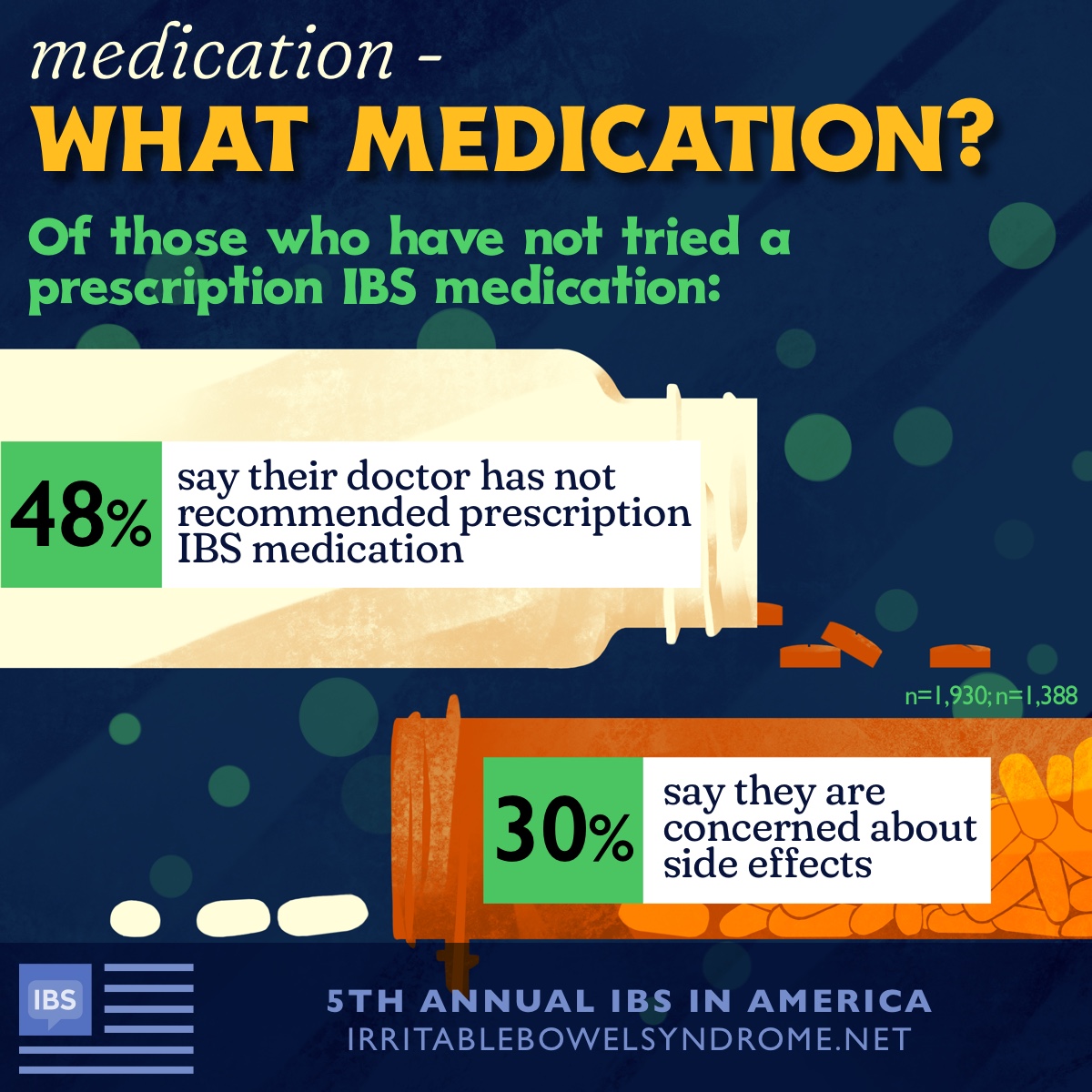
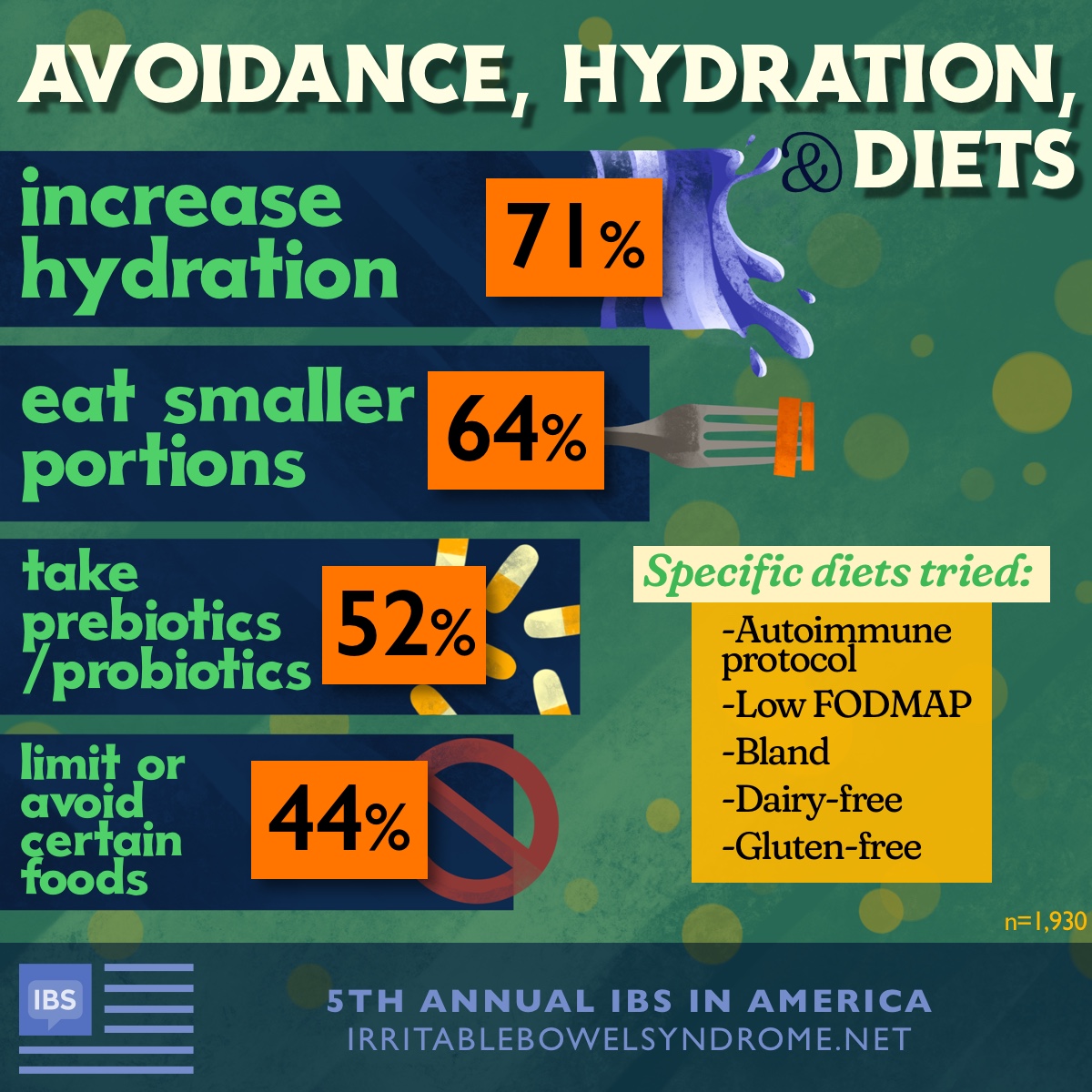
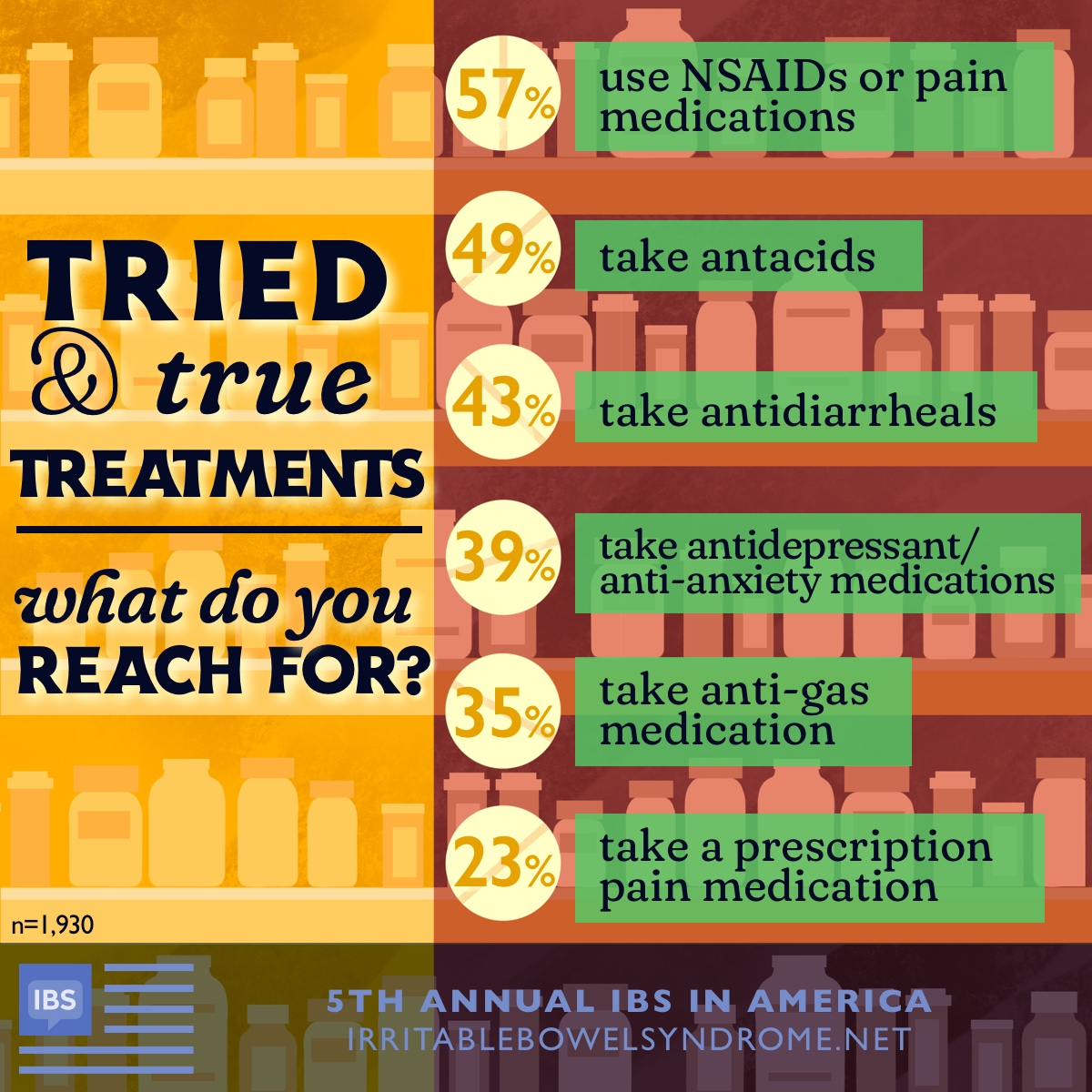
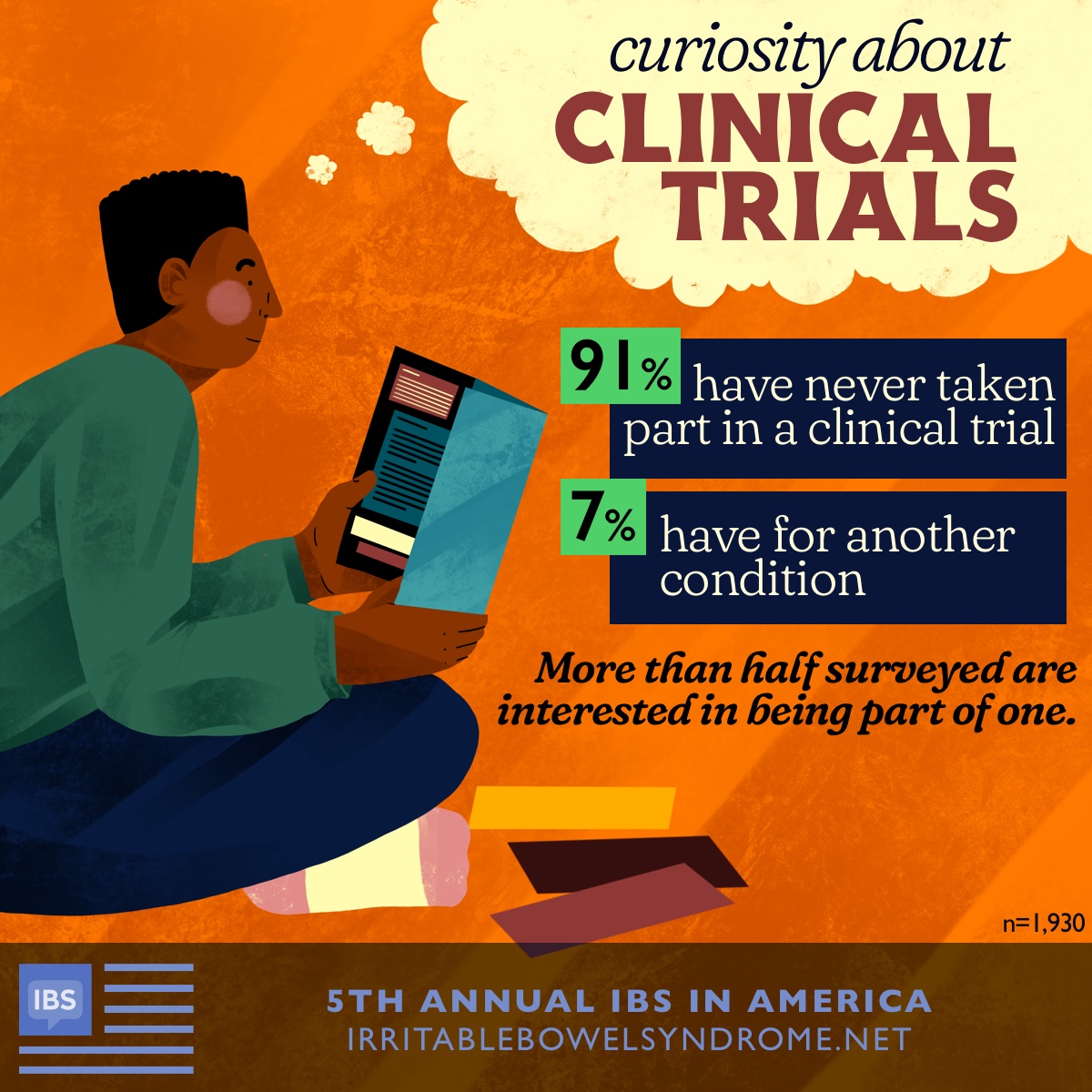
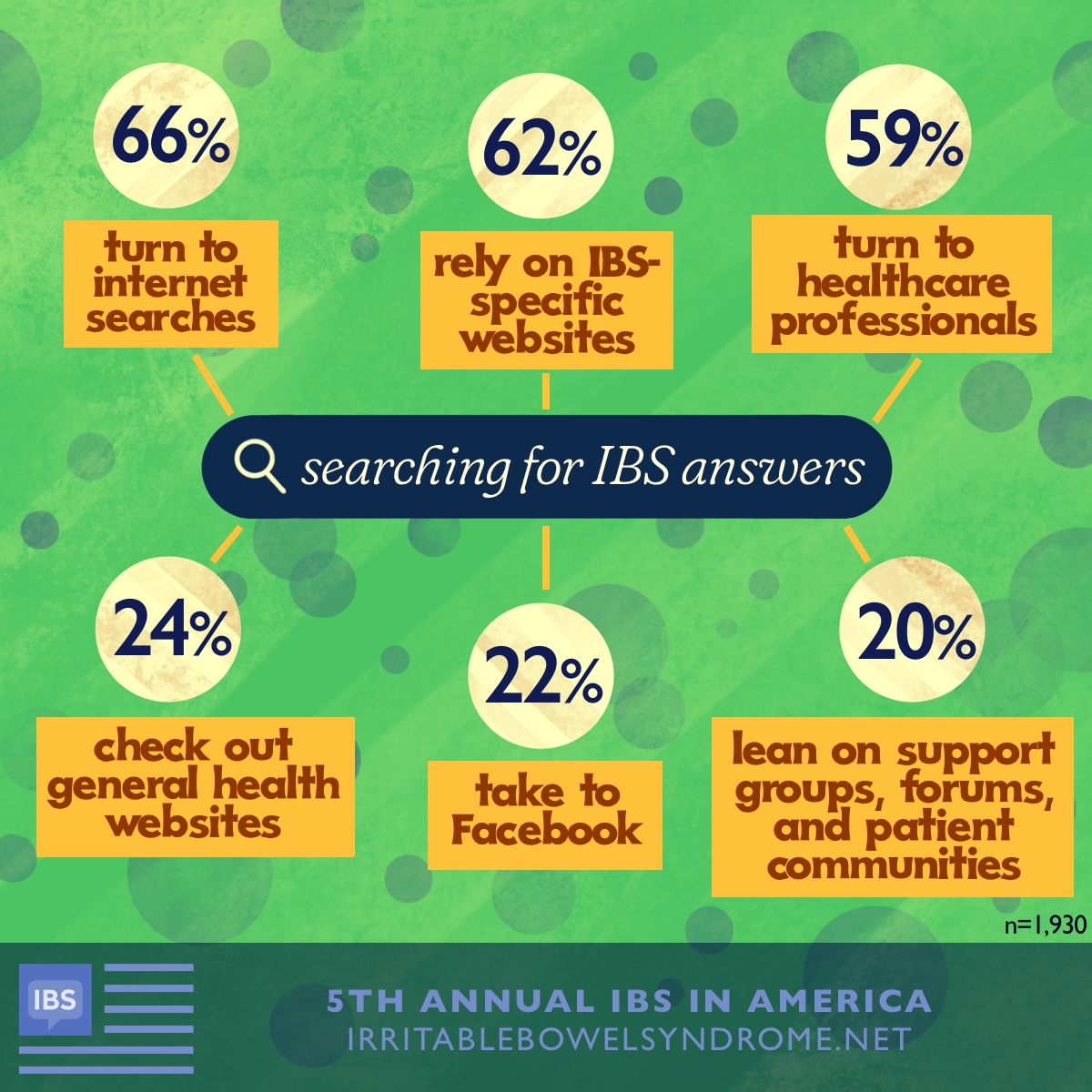
Join the conversation